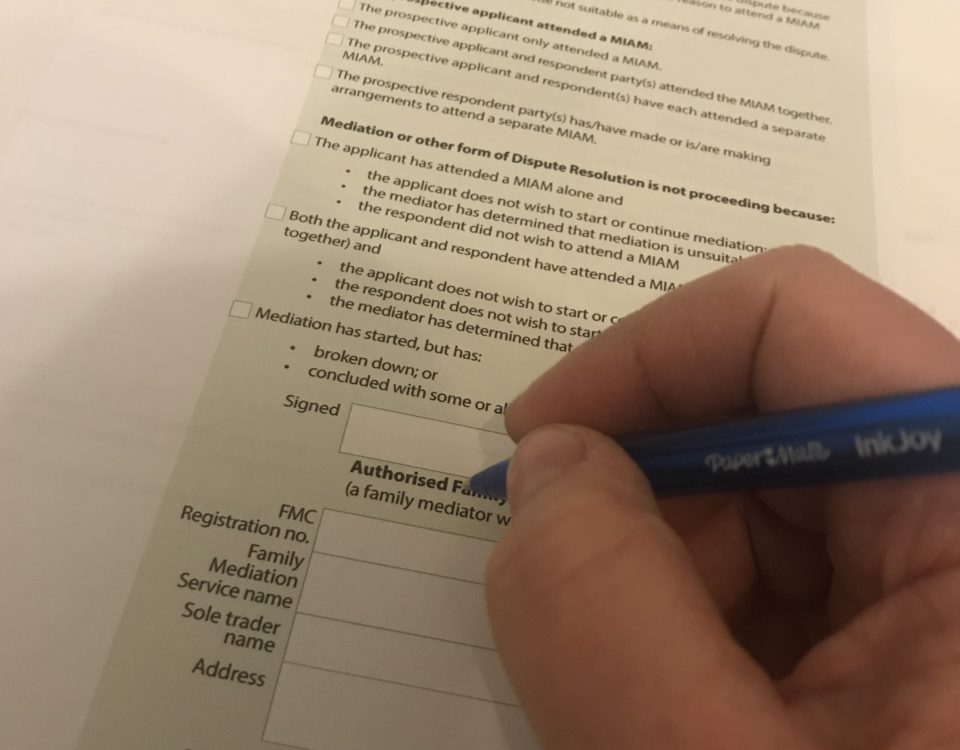
Free Mediation for those eligible for Legal Aid
October 3, 2018
If not now, when – Old Year Reflections vs New Year Resolutions
January 8, 2019Children have anxieties when their parents separate.
Most children are told what the new arrangements are going to be. They are often concerned how the arrangements will work in practice and how the separation will impact on their lives.
Parents are routinely encouraged to consider inviting their children to participate directly in the mediation process and most children appreciate the opportunity to be heard directly. Mediation offers children an opportunity to express their views and wishes about the issues affecting them after their parents’ separation in terms of maintaining friendships, schooling, relationships with extended family group members.
The main purpose of meeting with children is to listen to them.
When deciding if it’s for their children. parents are reassured that:
- children will not be asked to make choices or decisions
- parental authority is respected
- children are seen only with the agreement of both parents
- children can be invited to meet with the mediator at different stages in the mediation process:
- at the agenda setting stage, so their issues are included in their parents’ agenda
- when options have been proposed and explored, to hear the children’s views and take them into account
- at the end, to communicate and explain proposed future arrangements and to “fine-tune” them in light of children’s response; for an individual or family meeting
The process
- Children and parents are told that this can be an opportunity for children to talk privately with the mediator. Parents will only be told what children wish them to hear (with the important exception to confidentiality in relation to risk of harm).
- The mediator, working with the parents, may meet with the children alone, or may involve a co-worker. Arrangements for when the children come, who brings them, where people wait and how feedback will be communicated to parents will all be agreed with parents as part of the preparation.
- Children are invited to attend but may choose not to.
- Mediators are trained specifically to include children in this way and a major element of our core training focuses on bringing children in to the process to ensure their needs are considered.
- The mediator will offer a confidential session to the children. Children will be told that the mediator does not report everything back to the parents; only what they agree. Children can ask questions and generally be reassured that things will get better.
- Children can say no to meeting the mediator and they should not be pressurised to attend a meeting. Children should not be coached to tell the mediator what one parent or the other wants them to. Indeed, the mediator is trained to hear ‘coaching’.
- Once the child has agreed to feeding certain information back to their parents, the mediator will meet up with parents and include the information into the mediation, bringing the children’s views to the table before final decisions are made.
Deborah Butterworth is trained to include children’s voices into the mediation both in mediation meetings and holding meetings with children. She has enhanced DBS checks. Direct child consultation is routinely discussed at Mediation Information and Assessment Meetings (MIAMs) but for further information contact Mediated Dispute Solutions at www.mediateddisputesolutions.uk or call 020 79936869.




